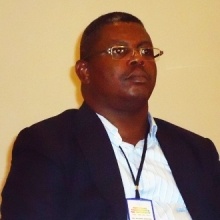
Mr. Richard Quayson, a Deputy Commissioner of the Commission on Human Rights and Administrative Justice (CHRAJ) on Tuesday said the future of the country would be bleak if the existing level of corruption continued.
Corruption, he said, was killing the nation and destroying the gains that had been made. Mr. Quayson, who was speaking at a sensitization programme for journalists at Takoradi said, “Corruption had become a dictatorship, and everybody was submitting to it."
He said the people were paying the price for corruption and, therefore, the fight against the practice must be everybody’s concern. Mr. Quayson said the CHRAJ, media and civil society had a role to play in actively addressing corruption and governance issues. He said Ghana was reviewed under the United Nations Convention Against Corruption, and it had been ascertained that the country had done well in terms of legislations against corruption and establishment of anti-corruption institutions.
Mr. Quayson said the country was weak in the implementation of the legislations and anti-corruption institutions. There was the need to correct past mistakes, mobilize resources and invest them in the fight against corruption, he said. Mr. Charles Ayamdoo, Director of the Anti-Corruption Department of CHRAJ, said the National Anti-Corruption Action Plan (NACAP) was a national plan of action to combat corruption in the country in the next 10 years.
He said the main purpose of the plan was to create a sustainable democratic society founded on good governance and imbued with high ethics and integrity. Mr. Ayamdoo said the strategic objectives of NACAP were to build public capacity to condemn and fight corruption and to make its practice a high risk, low gain activity and to institutionalize efficiency, accountability and transparency in the public and private sectors.
Other objectives were to engage individuals, media and civil society organizations report and combat corruption and to conduct effective investigations and prosecution of corrupt conduct, he said. Mr. Ayamdoo said in order to ensure coordination of anti-corruption efforts, NACAP integrates anti-corruption measures into the programmes and activities of public sector organizations particularly Ministries, Departments and Agencies (MDAs), Metropolitan, Municipal and District Assemblies (MMDAs) and key actors in the private sector.
He said the plan would not succeed without the utmost support from the media and civil society, adding that a free and independent media with adequate access to information was extremely important in the fight against corruption. Mr. Ayamdoo urged the media to be bold in publishing information about corrupt officials and corrupt cases while operating in impartial manner and to avoid sensationalizing corrupt cases. “Bias and sensationalism could undermine the fight against corruption," he said.
Mr. Ayamdoo said the Media Commission must contribute to the success of the NACAP by thoroughly investigating allegations of media corruption, sanctioning corrupt media practitioners and upholding the highest standard of media practice. Ms. Linda Ofori-Kwafo, Executive Secretary of the Ghana Anti-Corruption Coalition (GNCC), appealed to the media and civil society organizations to use their activities to support the implementation of NACAP.